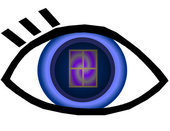What's your Dosha?
 .
.Ayurvedabelieves that everything in this universe is made up of five great elements orbuilding blocks. These are earth, water, fire, air, and ether.
Then there are three different body types called Doshas. They are theVata, Pitta and Kapha, and each is mainly a combination of two elements.
Vatadosha is made up of space and air. Pitta dosha is a combination of fire and water. Kapha dosha is made up of water and earth. Each of these doshas is furtherdivided into five sub-doshas. Together, the doshasorchestrate all the activities that occur within us. Some people haveequal parts of each dosha. Some are primarily one dosha or maybe two. Youcan take a quiz here tofind out which one fits your body.
If you feel thatsomething is not right in your body, the following will give you some guidelines to discover which dosha is unbalanced. However, more thanone dosha may be unbalanced, so please be aware.
Vata is unbalanced when there is pain, spasms, cramps, chills or shakiness. Pitta is unbalanced when there is inflammation, fever, excessive hunger and thirst, heart burn or hot flushes. Kapha is unbalanced when there is congestion, mucous, discharges, heaviness, fluid retention, lethargy or over sleeping. Likewise, Vata, Pitta and Kapha people aresusceptible to different chronic diseases:
Vata types are prone to insomnia, chronic constipation, anxiety and depression, muscle spasms, cramps, pre-menstrual syndrome (PMS), irritable bowel, chronic pain, high blood pressure, and arthritis. Pitta types are prone to rashes, acne, heart burn, and peptic ulcers, early balding and premature grey hair, poor eyesight, hostility, self-criticism and heart attacks related to stress. Kapha types are prone to obesity, congested sinuses, chest colds, painful joints, asthma and/or allergies, depression, diabetes, higher cholesterol (and related heart disease, atherosclerosis, high blood pressure and stroke), and chronic sluggishness in the morning.Theseare broad guidelines, but you can learn more here. Yourbody type is a strong influence, but not a cause. Being a Vata doesnot mean you are sure to have arthritis just as being a Pitta or Kaphadoes not mean you will never have arthritis. Your body type determines whatyou are more likely to be susceptible to. The problems occur when your dosha or doshasare out of balance. This can be addressed by changing your diet, exerciseand lifestyle. Imbalanceof doshas: Usually imbalance is a result of notliving in accordance with your body type and (or) external factors. Thetreatment is typically as follows:
1) Appropriatetherapy for balancing the doshas. This can involve: a certain life-style,eating of adequate food, herbs, massage with different oils, purifyingprocedures, a clinical therapy by using energies opposite to imbalanced doshas,etc. 2) Somepredominant methods used in ayurvedic therapy and yoga are asanas (yogicpostures), pranayama (breathing techniques), mantras (sound vibrations),meditation, a balanced diet and life-style. 3) Softening,changing of karma. This is basically youstriving to be a better person; to gain a loving attitude toward the world. Andalso, to perform sacrifices. That wouldbe karma-yoga (unselfish activity).
These three treatments are usually used together to varying degrees, depending on the needsof an individual. On all levels the mind is the root psychological or emotionalcause and factor of disease.
As you can see, thesetreatments are enriching for anyone. They can only improve the quality of your life and make you a happierperson. There is nothing harmful inexploring your doshas or trying Ayurveda approach. An Ayurveda doctor can prescribe medicine foryour ailments- non-pharmaceutical of course. This is a holistic approachto cure the illness, not to mask the symptoms as is the case many times inwestern medicine. You can learn more details here.
Sohow are you? Really- how do you feel? How is your health?
Doyou take any prescription drugs? Almost half of all Americans take at least oneprescription drug on a daily basis.
Thepill pushing climate that exists in the medical world today has caused a viciouscircle of disease. There is an overabundanceof prescriptions being written to mask symptoms. Rarely are today's medical doctors spending time getting to the root of the problem. I'm not specifically blaming the doctors. There are other evil forces behind this. Greedy mega-hospital systems, healthinsurance companies, powerful pharmaceutical companies. But- I digress- this is not a politicalstatement.
Please allow me to illustrate:
You start taking a prescription drug. This drug causes side effects and/or anothermedical condition. You may be given anadditional prescription to address the newer condition. That prescription will cause another sideeffect, and so on. So, how safe are prescriptiondrugs? Well, to start with, numerouslawsuits are being filed against the manufacturers of dozens of drugs. Everythingfrom antibiotics to antidepressants and statins. It is now proven that thesedrugs all have serious side effects that can cause heart attacks, strokes,blood clots, liver & kidney failure, tendon rupture, psychotic episodes,memory loss and a host of other diseases.
So, are youthinking that you're better off with over the counter drugs? More people die from over the counter &prescription drug use than cancer! Yes, it's true, Non-steroidalanti-inflammatory drugs (NSAIDs) like Advil & Motrin cause more deathsannually than aids. That is 103,000 hospitalizations and more than 16,000deaths per year in the US, according to a study published in the AmericanJournal of Therapeutics. New research shows that long-term use of acetaminophen -- sold under the brand name Tylenolcauses kidney damage
People are looking for alternativeanswers. It's always good to keep an open mind& never stop learning- it could save your life.
Published on March 07, 2012 11:41
No comments have been added yet.



